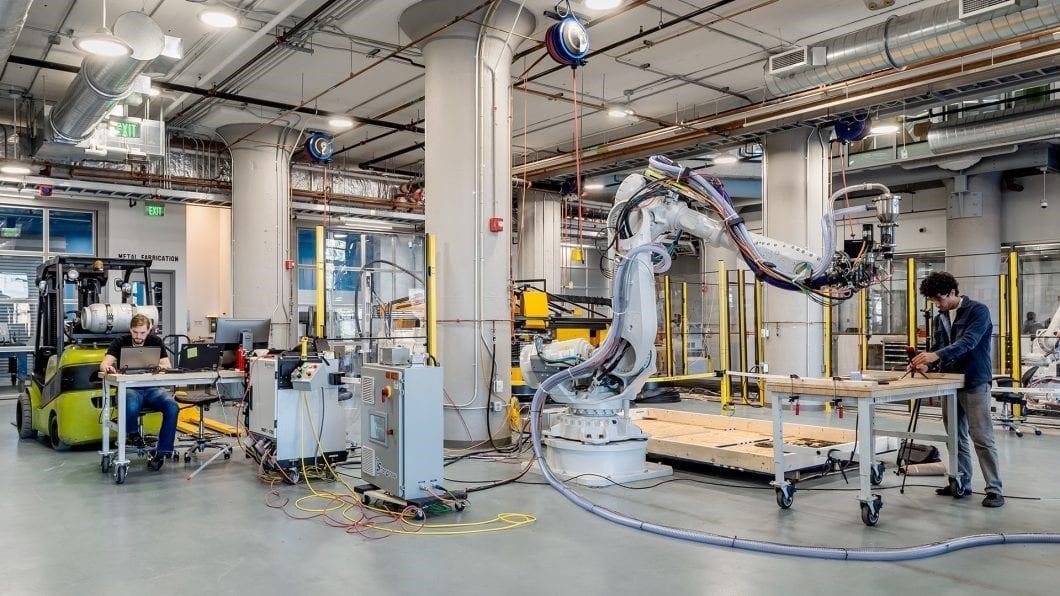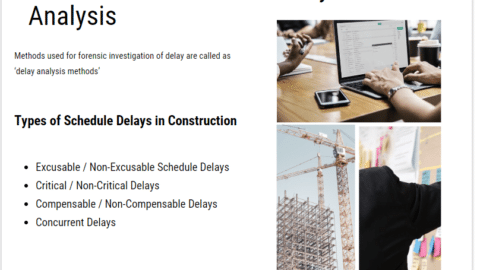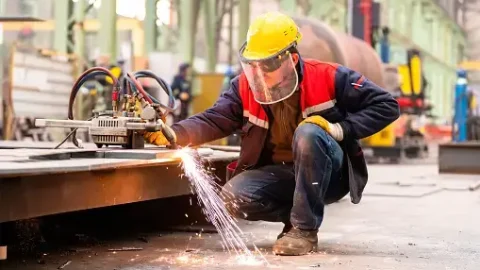7 Types of Construction Technology Shaping the Construction Industry
The construction technology industry has witnessed significant advantages over the past years, thanks to the integration of software solutions. From streamlining project management, enhancing communication and safety, to increasing efficiencies, reducing costs, and improving productivity levels, construction software solutions have revolutionized the construction sector.
Table of Contents
The Intelvision team has highlighted seven main types of information technology that are shaping the industry nowadays, leading to improved efficiency, productivity, and sustainability. Software development specialists have also discussed why it’s important to adopt technologies in the construction sector and share tools and equipment pieces that enhance productivity and efficiency levels.
What is Construction Technology?
Construction technology includes advanced tools, software solutions, and modification items for safely and efficiently completing construction projects. These tools consist of robots, drones, databases, and mobile applications that help people working in construction complete their tasks quickly without negatively impacting the stability, cost, or reliability of the project. Engineers also build construction equipment, vehicles, and other types of materials that are environmentally friendly and sustainable.
Top Construction Technologies to Implement in Your Company in 2023
There are various construction technologies that companies may use to complete their daily tasks. Key construction technologies to consider adopting include:
1. Building Information Modeling (BIM) Software
BIM is a collaborative software-based approach that allows construction professionals to create and manage digital representations of the physical and functional characteristics of a project. Building Information Modeling facilitates improved project visualization and coordination between stakeholders, also enabling better decision-making throughout the project lifecycle.
BIM solutions are already widely used for large-scale facilities projects, including in India, Hong Kong, France, South Korea, Germany, and Italy. In the UK, Building Information Modeling is already mandatory for government construction projects. According to Research and Market’s 2021 BIM Market Report, emerging trends that will have a direct impact on the industry include AI development in Building Information Modeling, increased demand for BIM-based cloud collaboration, and modular construction and prefabrication.
- Improved Design: BIM enables architects and engineers to create more accurate and efficient designs, leading to better-performing buildings and infrastructure.
- Enhanced Collaboration: BIM encourages teamwork and information sharing, reducing conflicts and misunderstandings among project stakeholders.
- Reduced Rework: Clash detection and coordination in BIM reduce errors, change orders, and rework during construction, saving time and money.
- Cost Savings: Better cost estimation and resource management help control project budgets more effectively.
2. Augmented Reality (AR) and Virtual Reality (VR)
Augmented Reality (AR) and Virtual Reality (VR) technologies have already made a significant impact on the construction industry because they are enabling immersive experiences and enhanced visualization. Hence, in the future, AR and VR will become more sophisticated, allowing contractors and architects to virtually walk through a construction site, assess design changes, and identify potential issues in advance. These technologies will help improve design accuracy, reduce rework, and enhance communication.
3. Drones or UAVs
Unmanned Aerial Vehicles (UAVs) Construction Technology, commonly known as drones, have transformed various industries, and construction is no exception. The industry experiences a 239% growth in drone use annually. Drones equipped with high-resolution cameras and sensors can capture aerial images, monitor construction progress, and conduct inspections with greater speed and accuracy. In the future, drones will be even more commonly integrated with AI algorithms to automate data analysis, detect safety hazards, and improve construction site security.
4. Internet of Things (IoT)
IoT refers to the network of interconnected devices embedded with sensors and software that enables them to collect and exchange data. In the construction sector, the Internet of Things can provide real-time information about equipment usage, energy consumption, worker location, and safety conditions.
5. Robotics and 3D Printers

Robotics and 3D printers are rapidly transforming the construction sector, increasing productivity and reducing human error. Robotic technologies are already being used for tasks like bricklaying, concrete pouring, and material handling. In the future, robotics will become more sophisticated, performing complex construction activities. That will improve project scheduling, material tracking, and quality control, minimizing delays, and improving overall project outcomes. With robots and 3D printers, the opportunities are endless. This applies to impoverished regions of the globe, where traditional housing is costly.
6. Cloud Computing
Cloud computing of Construction Technology has revolutionized data storage, accessibility, and collaboration in the construction sector. Cloud-based platforms enable real-time information sharing, document management, and seamless collaboration among project teams, regardless of their physical locations. In the future, cloud-based solutions will continue to develop, offering enhanced security, advanced analytics, and integrated project management functionalities, thereby optimizing project workflows and boosting efficiency.
7. Artificial Intelligence (AI)
Artificial Intelligence (AI) powered algorithms can analyze vast amounts of data, identify patterns. And make accurate predictions, leading to improved decision-making, optimized construction schedules, predicted material requirements, and assessed project risks.
Construction technology refers to the application of innovative tools, equipment, materials, and processes to improve the efficiency, safety, and sustainability of construction projects. Over the years, advancements in construction technology have significantly transformed the industry, making construction processes more streamlined, cost-effective.
Final Thoughts On Construction Software Technology
New construction technology is evolving. Investing in the latest construction technologies is undoubtedly a smart business move. For example, prefabrication involves manufacturing components of a building off-site and then assembling them on-site. Hence, modular construction takes this a step further by creating entire modules or units in a factory setting. So, prefabrication and modular construction reduce construction time, improve quality control, and minimize waste. To stay competitive, firms in this industry need to embrace technologies listed above. The key is finding the tech solutions that can help you reach your business goals. Transform your construction business to success!

Victor Z Young is a Civil Engineer with 35 years of experience working alongside the executive team of various construction companies. Victor specializes in construction insurance, delay analysis, performance analysis and engineering. He holds a Doctor of Project Management from Northwestern University.











